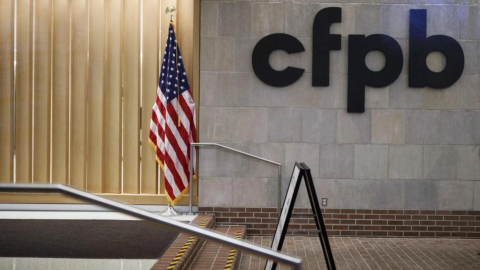In its latest development, the Consumer Financial Protection Bureau (CFPB) is reportedly planning to reopen its recently finalized open banking rule, as reported by Bloomberg Law.
In October, the CFPB published the Personal Financial Data Rights final rule, which aims to empower Americans to direct their banks to share their financial data with third-party providers. However, sources indicate that the Trump administration is reconsidering this rule and may potentially vacate it.
This move comes amidst concerns from banks regarding potential liabilities associated with data breaches and whether they can charge for access to customer data. They also seek the authority to prevent firms from abusing their access to such data.
The future of the rule remains uncertain, as it’s unclear if it will be amended or eliminated. Steve Boms, CEO of open banking advocacy group FDATA North America, remarked, “Reopening this rulemaking means stalling financial innovation and prolonging uncertainty for both businesses and consumers in America."
The initiative has faced significant pushback from traditional financial institutions. Shortly after the rule’s finalization, the Bank Policy Institute and Kentucky Bankers Association filed a lawsuit against the CFPB, claiming that the regulatory agency exceeded its authority. The lawsuit contends that the rule places the entire burden of protecting customers on banks while the CFPB assumes no responsibility for monitoring data recipients.
This action exemplifies a significant shift in approach under the Trump administration, contrasting sharply with previous positions taken under acting Director Russell Vought. In March, the bureau abandoned an interpretive rule that sought to classify pay-in-four buy now, pay later (BNPL) lenders similarly to credit cards.
Recently, the CFPB has also dismissed several lawsuits against financial institutions, including JPMorgan Chase, Bank of America, and Wells Fargo, concerning fraud on the Zelle peer-to-peer payments network. Additionally, a proposed rule intended to provide the CFPB oversight over major tech companies like Apple, Google, and others offering digital payment apps has been rejected by Congress.
